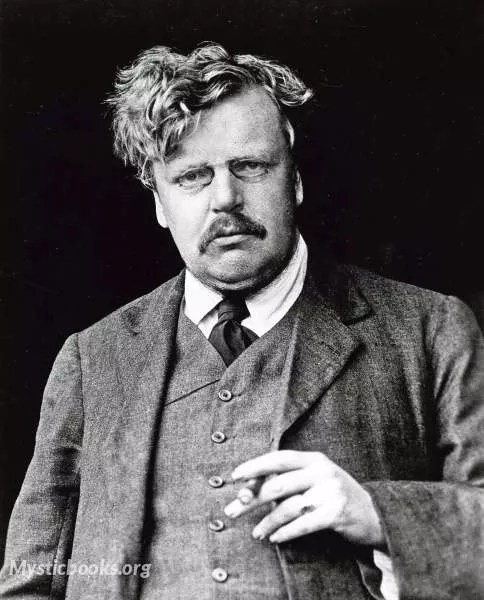
Timeline
Title
Country/Nationality
Gilbert K. Chesterton
Chesterton wrote around 80 books, several hundred poems, some 200 short stories, 4,000 essays (mostly newspaper columns), and several plays. He was a literary and social critic, historian, playwright, novelist, Catholic theologian.
Gilbert Keith Chesterton (29 May 1874 – 14 June 1936) was an English writer, philosopher, lay theologian, and literary and art critic. He has been referred to as the "prince of paradox".
Time magazine observed of his writing style:
"Whenever possible Chesterton made his points with popular sayings, proverbs, allegories—first carefully turning them inside out."
Chesterton died of congestive heart failure on 14 June 1936, at his home in Beaconsfield, Buckinghamshire. The sermon at Chesterton's Requiem Mass in Westminster Cathedral, London, was delivered by Ronald Knox on 27 June 1936. Knox said, "All of this generation has grown up under Chesterton's influence so completely that we do not even know when we are thinking Chesterton." He is buried in Beaconsfield in the Catholic Cemetery. Chesterton's estate was probated at £28,389, equivalent to £1,943,135 in 2019.
Near the end of Chesterton's life, Pope Pius XI invested him as Knight Commander with Star of the Papal Order of St. Gregory the Great. The Chesterton Society has proposed that he be beatified. He is remembered liturgically on 13 June by the Episcopal Church, with a provisional feast day as adopted at the 2009 General Convention.
Books by Gilbert K. Chesterton
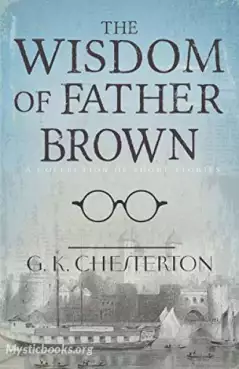
The Wisdom of Father Brown
This is the second of five books of short stories about G. K. Chesterton’s fictional detective, first published in 1914. Father Brown is a short, nondescript Catholic Priest with shapeless clothes and a large umbrella who has an uncanny insight into...
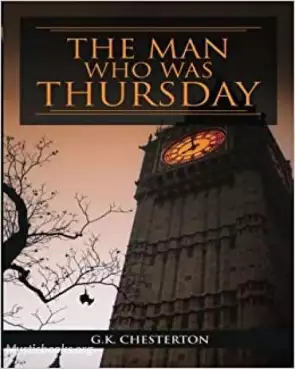
The Man Who was Thursday
Two poets in a London park at sunset, debating on the attributes of poetry and whether it's really a metaphor for anarchy. A group that meets in secret, planning to overthrow the world order. Disguises and deceptions, ideals and ideology. A medley of...
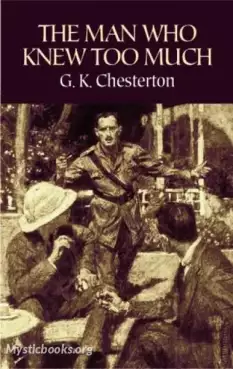
The Man Who Knew Too Much
Robbery, murder and treason. Strange happenings in quiet English villages. A book critic who happens to find a corpse with its head crushed, an Irish freedom fighter framed for a crime, the disappearance of a valuable coin, a strange dispute over a...
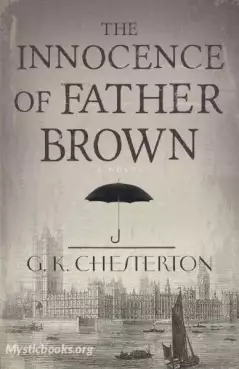
The Innocence of Father Brown
A Chief of Police hosts a dinner party for an American millionaire wishing to will his entire fortune to the Church of France. Jewels that have been stolen and recovered so many times that they're known colloquially by thieves as The Flying Stars. A...
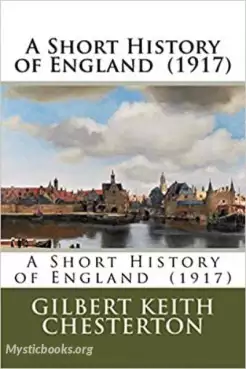
A Short History of England
Gilbert Keith Chesterton was a prolific writer on many topics. His views of history were always from the standpoint of men and their interactions, and it may fairly be said he saw all of history as a battle between civilization and barbarism. So it h...
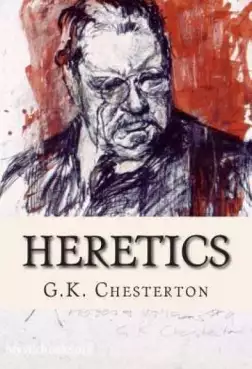
Heretics
Heretics is a collection of 20 essays by G. K. Chesterton and published by John Lane in 1905. While the loci of the chapters of Heretics are personalities, the topics he debates are as universal to the "vague moderns" of the 21st century as they were...
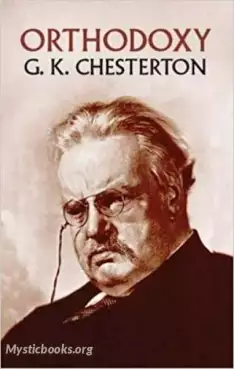
Orthodoxy
Orthodoxy (1908) is a book by G. K. Chesterton that has become a classic of Christian apologetics. Chesterton considered this book a companion to his other work, Heretics, writing it expressly in response to G. S. Street's criticism of the earlier wo...
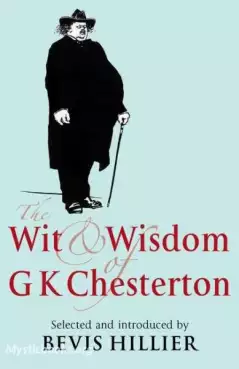
Wit and Wisdom of Chesterton
This little volume, issued as a gift book for lovers of Mr. Chesterton's writings in 1911, is made up from essays to be found in "The Defandant", "Varied Types" and "Tremendous Trifles". These 12 pieces were chosen to giving a peek into the margins o...
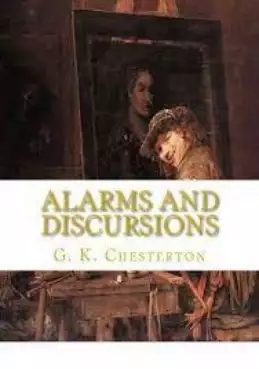
Alarms and Discursions
Gilbert Keith Chesterton was an influential English writer of the early 20th century. His prolific and diverse output included journalism, philosophy, poetry, biography, Christian apologetics, fantasy, and detective fiction. Chesterton has been calle...
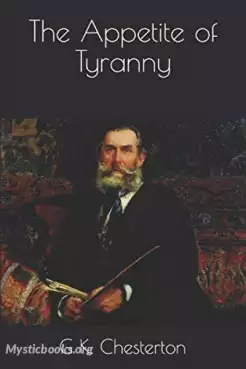
The Appetite of Tyranny
“Unless we are all mad, there is at the back of the most bewildering business a story: and if we are all mad, there is no such thing as madness. If I set a house on fire, it is quite true that I may illuminate many other people's weaknesses as well a...
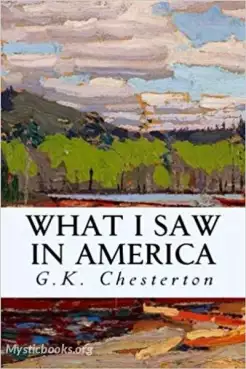
What I Saw in America
“Let me begin my American impressions with two impressions I had before I went to America. One was an incident and the other an idea; and when taken together they illustrate the attitude I mean. The first principle is that nobody should be ashamed of...
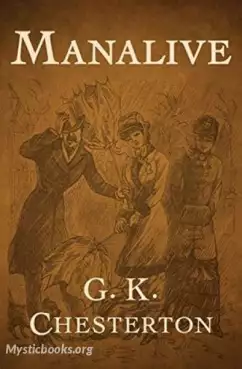
Manalive
Manalive is a book by G. K. Chesterton detailing a popular theme both in his own philosophy, and in Christianity, of the "holy fool", such as in Dostoevsky's The Idiot and Cervantes' Don Quixote.
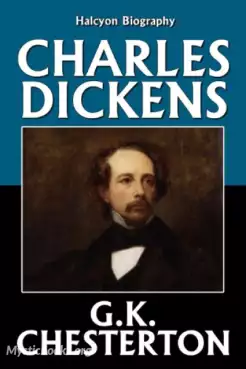
Charles Dickens
Charles John Huffam Dickens was an English writer and social critic. He created some of the world's best-known fictional characters and is regarded by many as the greatest novelist of the Victorian era. His works enjoyed unprecedented popularity duri...
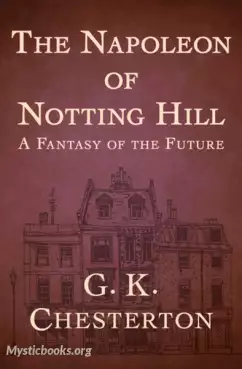
The Napoleon of Notting Hill
Although the novel is set in the future, it is, in effect, set in an alternative reality of Chesterton's own period, with no advances in technology nor changes in the class system or attitudes of the time. It postulates an impersonal government, not...
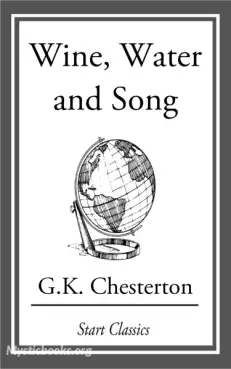
Wine, Water and Song
This is a book of poems that were originally published as part of G. K. Chesterton's.
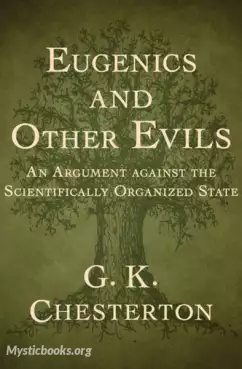
Eugenics and Other Evils
This was a book about eugenics, and it was -- but it was also a beautiful defense of property rights, a powerful assault on plutocratic elitism, and an unusually compassionate statement about the dignity and difficult position of the post-Victorian w...
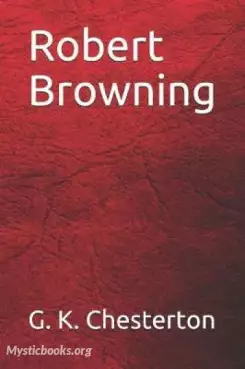
Robert Browning
There is an old anecdote, probably apocryphal, which describes how a feminine admirer wrote to Browning asking him for the meaning of one of his darker poems, and received the following reply: "When that poem was written, two people knew what it mean...
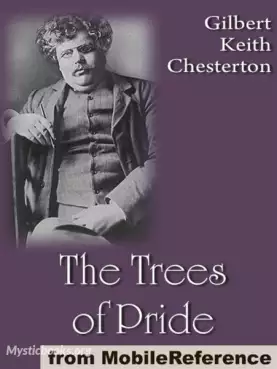
The Trees of Pride
Three trees, known as the Peacock trees, are blamed by the peasants for the fever that has killed many. Squire Vane scoffs at this legend as superstition. To prove them wrong, once and for all, he takes a bet to spend the night in the trees. In the m...
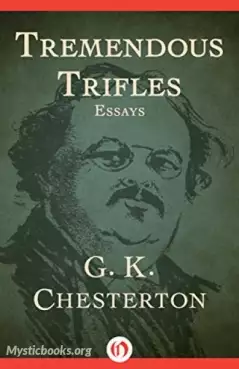
Tremendous Trifles
It's vintage. A collection of essays on all sorts of topics: lying in bed, forgetting white chalk, being expelled from a Hansom Cab against his will, Picking his own pockets, robbing a French restauranteur, and all sorts of typical Chesterton absent...
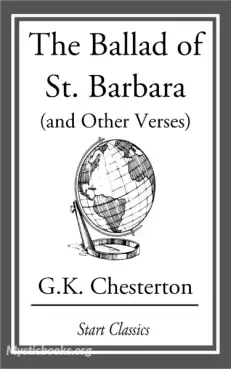
The Ballad of St. Barbara and Other Verses
This book of poetry by G. K. Chesterton, originally published in 1922, contain 35 poems on a variety of subjects.
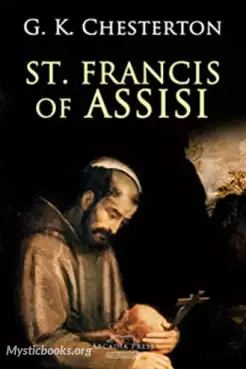
St. Francis of Assisi
For Chesterton, Francis of Assisi is a great paradoxical figure, a man who loved women but vowed himself to chastity; an artist who loved the pleasures of the natural world as few have loved them, but vowed himself to the most austere poverty, stripp...
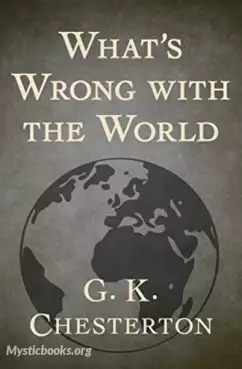
What's Wrong With the World
In this work, Chesterton repeatedly startles and shocks us, for he reads as if he were commenting on the latest issue of the New York Times rather than the press of his day (early 20th Century). Sex, education, feminism -- his trenchant and damning c...
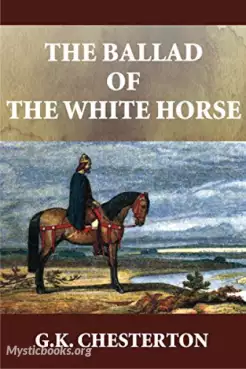
The Ballad of the White Horse
The Ballad of the White Horse is a poem by G. K. Chesterton about the idealised exploits of the Saxon King Alfred the Great. Written in ballad form, the work has been described as one of the last great traditional epic poems ever written in the Engli...

The New Jerusalem
The New Jerusalem is a book by the English author and journalist G. K. Chesterton. Dale Ahlquist calls it a "philosophical travelogue" of Chesterton's journey across Europe to Palestine.
Showing 1 to 24 of 69 results